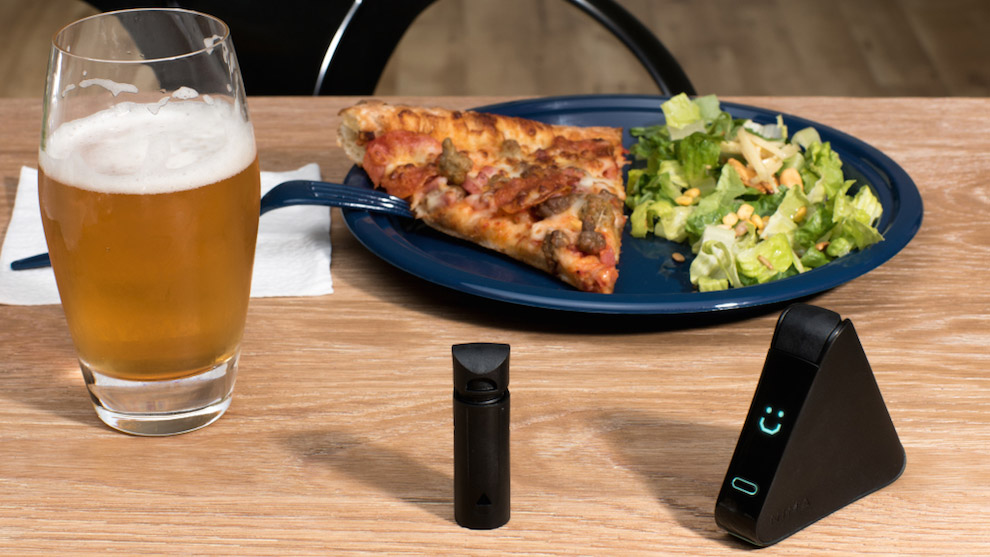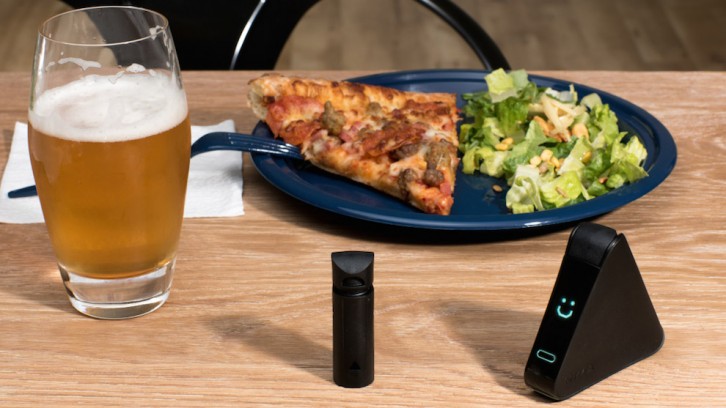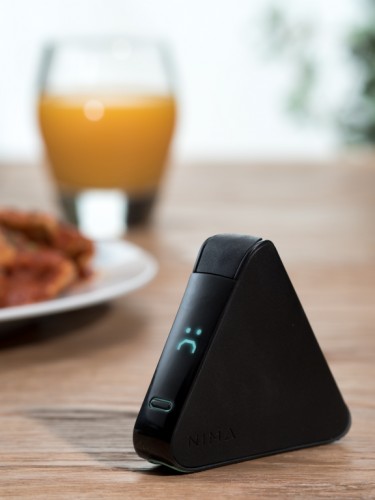Health
Your new dinner date: the Nima sensor
The Nima sensor could make the lives of celiacs everywhere a little easier - if it works

caption
The Nima sensor claims to be able to test food for the presence of gluten in two minutes
caption
The Nima sensor claims to be able to test food for the presence of gluten in two minutesYou’re sitting in a new restaurant. You skim the menu and come to the realization that you are limited to about three options – two of which are salads. Before you can eat you have to quiz the waitress on each ingredient in each dish and how it’s all prepared. From when you finally place your order until you are finished the last bite of your meal, you are faced with a nagging question in the back of your mind: is this going to make me sick?
Every time someone with celiac disease or gluten intolerance chooses to eat something that they haven’t prepared themselves, they are faced with the dilemma of risking their health or going hungry.
But a San Francisco company hopes to change that. 6Sensor Labs has created a new device, called Nima, that it claims can test small samples of food for the presence of gluten, all in the palm of your hand.
“I found from personal experiences that it was challenging to eat out, and to eat socially, and stay healthy [with a food allergy],” said Shireen Yates, co-founder and CEO of 6Sensor Labs. “The idea for Nima came at a wedding when I asked the waitress if an appetizer was gluten free, and she said ‘Well how allergic are you?’ I was like, I’m tired of hearing that question. I want to know myself if there’s gluten in here.”
Celiac disease is an autoimmune disorder whose sufferers are unable to digest gluten, a protein found in wheat, rye, and barley. When celiacs eat food that contains gluten, the lining of their small intestine becomes inflamed. Symptoms can include abdominal pain, bloating, anemia, nerve damage and unusual menstrual cycles in women. According to the Canadian Digestive Health Foundation more than 330,000 Canadians suffer from celiac disease, and two thirds of them are undiagnosed.
To use the Nima sensor, you put a small food sample in what Yates describes as a “mini lab kit” – a disposable capsule that uses a chemistry-based sensing technology to detect the gluten protein. The capsule is then placed into the Nima itself, and in two minutes it will either display a smiling face (no gluten) or a frowning face (gluten is present). Nima detects gluten in amounts higher than 20 parts per million – the Health Canada standard for something to be considered gluten free.

caption
The Nima sensor frowns when it detects gluten“We’re so excited to help people understand what’s in their food and how they’re nourishing themselves,” said Yates. “People reach out with genuine stories about trying to live a healthy life and trying to be social and the challenges around that when you’re living with dietary constraints.”
Celiac expert doubtful
Currently Nima only tests for gluten, but 6Sensor labs plans to one day have it check for the presence of other common allergens, such as milk, shellfish, and peanuts.
GlutenTox is a similar product but it takes around 20 minutes to produce results, and resembles a small lab kit, making it cumbersome for use outside the home. It can test for gluten down to five ppm, though. EZGluten can test for gluten as low as 10 parts per million, but requires users to break up their own food prior to testing. Its disposable tests cost twice as much as Nima’s single-use capsules.
“It would be a great device if it really works, but I’m skeptical. Nothing satisfies me about how this works. What’s the chemistry? Where are the studies?” asks Allan Stuart, president of the Canadian Celiac Association’s Nova Scotia chapter, and a former analytical chemist. “I wouldn’t go out and buy one or recommend it, spend all that money, if they’re not telling me how it works first.”
Stuart says that a technique called electrophoresis, that works by separating molecules by size, can accurately detect small amounts of gluten in food. But, it takes two hours, and is the “size of a desktop.”
Yates says she and 6Sensor co-founder and CTO Scott Sundvor have spent the past two years developing the technology and the chemistry for Nima. However, they haven’t released their third-party validation data or any of their studies and say they won’t until they begin to ship Nimas out.
Nima will be available for a limited pre-sale starting Oct. 20 at a price of $179.99. After that the price will climb to $249. 12-pack refills of disposable capsules are available for $59.95. Devices begin shipping mid-2016.

